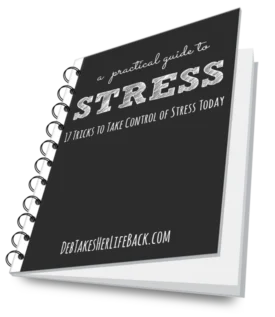If the pandemic taught us anything about our careers, it was that life is too short to be so stressed out all the time. It led many to seek out work from home opportunities, more flexible schedules, more meaningful vocations, and overall less stressful jobs.
What are the best low stress jobs? I’m so glad you asked!
Understanding Low-Stress Jobs
In the face of evolving workplace dynamics, especially post-pandemic, low-stress jobs have become a priority for many professionals seeking better work-life balance, reduced strain, and improved mental health.
Defining Low-Stress
Low-stress jobs are positions typically characterized by a lower intensity of stress tolerance requirements. These roles often demand less of your energy in high-stress situations and provide a working environment where stressors such as tight deadlines or existential pressure are minimized.
Benefits of Low-Stress Careers
The main advantage you’ll find in pursuing a low-stress career is the potential for an improved work-life balance.
This balance allows you to allocate more time and energy to personal activities and relaxation, fostering better overall wellbeing. Additionally, less strain in your professional life can lead to sustained productivity and satisfaction with your job.
Identifying Low-Stress Professions
To single out low-stress professions, look for jobs that are reported to have supportive management, reasonable workloads, and a positive work environment. Remember, what constitutes a low-stress job can vary greatly from person to person, so consider your own thresholds and the specific aspects of a role that might influence your stress levels.
Best Low Stress Jobs
Professionals seeking a balanced work-life dynamic can find solace in certain industries known for their lower stress levels. The following sectors are renowned for offering the least stressful jobs.
Creative Arts
In the creative arts, you have the opportunity to express your vision with less pressure.
Art directors, for example, can enjoy the creativity of crafting visual storytelling elements while working in a stimulating yet manageable environment. Similarly, artists have the advantage of turning their passion into a career with flexible schedules and self-guided projects, while a graphic designer can often choose their projects.
Working as a photographer can be a rewarding and low-pressure occupation.
Your schedule can be flexible, allow you to set your own hours for freelance opportunities and choose your projects in photography. This flexibility often results in a better work-life balance that many professionals desire.
Healthcare
The healthcare sector offers several of the least stressful jobs, such as those of an audiologist.
As an audiologist, you can find fulfillment in improving patients’ quality of life without the demands typically associated with medical professions. Audiologist jobs (and those of their support staff) often come with predictable schedules and a calm working atmosphere.
As a massage therapist, your work promotes relaxation and mental health not just for clients, but also creates a serene atmosphere for yourself. Operating out of a gym or having your own space, personal trainers often enjoy the autonomy to set their schedules and the satisfaction of helping others achieve their fitness goals.
The role of a medical records technician is often considered to have a low stress level, with good work-life balance and solid career path prospects for advancement and higher salary.
Technology
In the technology arena, you can find low-stress positions like software developers, web developer, and computer hardware engineer jobs, where your skills can shine through in project development and problem-solving. The tech industry also provides the perk of remote work, allowing for a better work-life balance.
Online Opportunities
There are certain online jobs that are commonly considered to be lower in stress due to their nature, flexibility, or the control they offer over one’s work environment and setting their own hours.
If you have a knack for writing, freelance writing can be a relatively low-stress job. You can write blog posts, articles, or content for websites and manage your workload according to your schedule.
Similarly, if you have an eye for detail, proofreading documents and content can be a calm and methodical online job.
Data entry jobs involve inputting information into a computer system or database. This work is often routine and can be done at your own pace, as long as you meet deadlines.
Many virtual assistants work from home and provide administrative support to businesses or entrepreneurs. The tasks can be varied but are often routine and can be managed with good organization skills.
If you have expertise in a particular subject, you can tutor students online. This job allows for flexible hours and, depending on the subject, can be quite low-stress.
Acting as a social media manager for small businesses or individuals can be accomplished from home and may not be highly stressful, especially if you enjoy social media and have good organizational skills.
And finally, an e-commerce seller can create their own career path by selling products online through platforms like Etsy, eBay, or Amazon. This path can offer a low-stress way to run a business if you have a good system for managing inventory and orders.
Data Analysis and Economics
Market data specialists and mathematicians have opportunities in data analysis and economics that typically involve minimal stress.
With strong demand for these skills, you can often find positions with generous pay and a comfortable office setting. Moreover, mathematician jobs can include rigorous, yet low-stress work such as theoretical research or teaching roles.
Science, Research, & Engineering
Fields like science and research offer positions conducive to in-depth study without the high-stress situations of other roles.
Biomedical engineer jobs, for instance, allow you to work in a methodical and often predictable environment, focusing on innovation in healthcare technology. Statisticians and economists can enjoy analyzing data and trends with the potential for regular hours and a structured work setting.
A low-stress job, such as a geoscientist, often involves activities like research and data gathering, which can contribute to a harmonious work-life dynamic. Similarly, a technical writer prepares instruction manuals, how-to guides, and more to communicate complex and technical information more simply.
In environmental science and engineering, consider roles like an environmental restoration planner.
Such positions usually come with a sense of fulfillment from contributing to sustainability while operating under minimal stress conditions. This career path can offer both fieldwork and office time, providing variety in your daily routine.

Financial Considerations of Low-Stress Jobs
When exploring the best low stress jobs, understanding the financial implications of the least stressful jobs is crucial. This includes knowing how much you could potentially earn and identifying the roles that offer a balance of good pay and low stress levels.
Understanding the Annual Salary
Your annual salary in a low-stress job can vary considerably based on factors like experience, education, location, and industry demand.
Salary data is your best friend in evaluating whether a low-stress job can meet your financial needs. For instance, a dental hygienist may earn a median salary of around $76,220 per year, which suggests that some low-stress professions can indeed offer competitive pay.
It’s essential to research up-to-date salary data specific to your region and the role you’re interested in to set realistic compensation expectations. GlassDoor.com offers a great starting point for salary research!
High-Paying Jobs With Low Stress
Certain low-stress occupations are known for being relatively high-paying jobs. For example:
- Actuary Jobs: Actuaries typically enjoy a strong balance between low stress and high compensation, with a median salary of about $108,350 per year.
- Dental Hygienist Jobs: Offering both part-time and full-time opportunities, a dental hygienist can earn substantial incomes with less stress compared to other healthcare roles.
- Radiation Therapist Jobs: With a median salary of $85,560 per year, radiation therapists are rewarded handsomely for work that often requires a standard 40-hour week and low stress.
To make an informed decision, create a list of potential occupations and gather the latest salary data from credible sources, embracing the idea that high-paying jobs can also be low-stress.

Achieving Work-Life Balance
In pursuit of a low-stress career, securing work-life balance is critical. Your wellbeing hinges on managing professional responsibilities while ensuring enough time for personal goals and leisure.
Prioritizing Time and Goals
To master a better work-life balance, you must delineate your time effectively. Ascertain clear and attainable goals, both within the scope of your career and your personal aspirations.
List your priorities, from crucial deadlines at work to significant family events. Utilizing tools such as digital calendars can help synchronize and balance your myriad of responsibilities.
Systematically blocking out time for each task will also solidify your routine, making certain that work does not encroach on valuable personal time.
Managing Workplace Stress
To keep workplace stress to a minimum, develop coping strategies like taking short breaks during your workday to rejuvenate. Simple stress-reduction techniques, including deep breathing exercises or a brisk walk, can also help to alleviate the pressures of the workplace.
And of course, healthy communication is always key. Transparent communication with your manager about workload and deadlines can lead to a more supportive work environment, allowing for a balanced professional life.

Essential Skills and Knowledge
Entering the realm of low-stress jobs typically requires a balance of specific skills and knowledge. Your proficiency in these areas can significantly impact your stress levels at work, making it crucial to develop yourself in these areas.
Key Skills for Low-Stress Jobs
The essential skills for thriving in a low-stress environment vary by profession. However, time management and problem-solving are universally valuable.
Effective communication skills, both written and verbal, allow for smooth interactions and clarity in your responsibilities. Additionally, consider the benefits of adaptability, as it enables you to handle changes or unexpected developments with ease.
In certain roles, technical skills like data analysis or project management may be pivotal.
Here’s a brief list of key skills:
- Time Management: Prioritizing tasks effectively.
- Effective Communication: Conveying information clearly.
- Problem-Solving: Identifying and resolving issues.
- Adaptability: Adjusting to new challenges.
Acquiring Relevant Knowledge
Beyond skills, you’ll need the appropriate knowledge to succeed.
Some positions might require a degree in a related field or certifications authenticating your expertise. For instance, a petroleum engineer benefits from an in-depth understanding of geological systems, which is usually gained through a degree program in petroleum engineering.
If you’re considering a position like a biomedical engineer, you’ll often need a combination of education and experience. This might include a degree in biomedical engineering and hands-on experience acquired through internships or entry-level positions.
Continuous learning and staying updated on industry trends are critical.
You should hone your technical knowledge, particularly if your job is in a specialized sector. Advancing your knowledge through online courses, workshops, or seminars can make you a more attractive candidate and can often be done while working in your current role.

Educational Pathways to Low-Stress Careers
Choosing the right educational pathway can lead you to a career that balances job satisfaction with low stress. Whether you hold a high school diploma or considering further education, there are specific qualifications and degrees that align with low-stress jobs.
High School Diploma and Beyond
If you hold a high school diploma, you have options for entering fields that are known to have a relaxing work environment.
For instance, vocational training programs can give you certifications that prepare you for roles like a massage therapist or a dental hygienist—careers known for a predictable and calm workday. Additionally, certain apprenticeships allow you to earn while you learn, paving the path to skilled trades that offer both good pay and lower stress.
College Degree Choices for Low-Stress Jobs
When it comes to college degree choices, a bachelor’s degree or master’s degree can open doors to some of the most fulfilling low-stress careers.
For example, a bachelor’s degree in geography could lead you to a career as a cartographer, where you’ll enjoy structured tasks and research. A master’s degree, such as one in data science, places you in a position to become a data scientist—a role that typically involves analysis and reporting with a high degree of autonomy.
By investing in your education at the college or university level, you’re setting the foundation for a career that can be both lucrative and low in stress.
Navigating Career Transitions
When you decide to transition to a low-stress job, it’s crucial to consider how your current experience and skills can facilitate this change. Navigating this path involves understanding the challenges and working toward practical solutions.
From High-Stress to Low-Stress
Shifting from a high-stress to a low-stress career often requires a deliberate strategy. Start by identifying the aspects of your current job that contribute to stress.
Is it the long hours, high-stress situations, or maybe the lack of autonomy? Once you’ve pinpointed these elements, you can seek out jobs that minimize or eliminate them.
Evaluate potential roles not just by the job description but also by the company culture and the industry’s typical demand levels. Roles such as hair stylists and carpenters are often cited as examples of low-stress jobs because they offer creative satisfaction and tangible results without the pressure of many corporate environments.
Utilizing Experience and Skills
Your existing experience and skills are your greatest assets when transitioning careers. Assess your professional background and how it can be advantageous in a new, less stressful role.
Do you have managerial experience that could translate into a project management position with a better work-life balance? Are there technical skills you possess that are sought after in less demanding sectors?
It’s beneficial to list your skills and consider how they align with the requirements of low-stress jobs. Certifications or additional education may be necessary to bridge any gaps.
Remember, your transition should not just aim for less stress but should ideally also maintain or improve your overall job satisfaction and career prospects.

Life is too short to spend 40 hours of every week feeling stressed out.
Now that you know the best low stress jobs, get to researching! Make a plan to get there!
Because friend? You deserve to be happy at work.
You’ve got this.
Frequently Asked Questions
If you’re searching for a career that maintains balance without high stress, you’ll find the following FAQs helpful in identifying roles that align with your goals for both comfort and satisfaction.
What are some ideal jobs for introverts seeking a low-stress environment?
Introverts may thrive in roles such as a librarian, where quiet working environments are commonplace, or as a research scientist, where independent work is often valued.
Can you suggest some enjoyable jobs that are also low in stress?
Creative roles like graphic designer or positions like yoga instructor can be both enjoyable and low in stress, often offering a balance of self-expression and relaxed work paces.
What options are available for low-stress entry-level positions?
Entry-level positions with lower stress levels include roles such as administrative assistant, where the responsibilities are clear-cut, or a data entry clerk, which is typically a routine job with predictable tasks.
What jobs are known for being minimally stressful and have a high earning potential of $100k or more?
Some high-paying jobs with low stress include actuaries, who work with statistics in a business environment, and pharmacists, who offer expertise in medications without the high-stress situations and pressures of other medical fields.
How can I find low-stress job opportunities in my local area?
Local job boards, career fairs, or employment agencies are great resources for finding low-stress opportunities. Websites like Indeed.com also allow you to filter job searches to find positions that are recognized as being low in stress.
What part-time jobs are considered low in stress while still offering job satisfaction?
Part-time positions such as a bookstore clerk or a receptionist at a local spa or medical office can be fulfilling and low in stress, often providing a calm work environment and the ability to interact with people in a positive setting.
Is there such a thing as a stress-free job?
Finding a completely stress-free job is quite rare, as most jobs will have some elements of stress due to deadlines, performance expectations, interpersonal dynamics, or other work-related pressures. However, some jobs may be considered low-stress due to factors such as a relaxed work environment, flexible schedules, autonomy, or tasks that are not highly demanding.
There are certain jobs that are generally considered to be less stressful due to their nature. These jobs might offer more predictable hours, less urgency in decision-making, and fewer confrontational interactions, for example.
It’s also important to recognize that stress is subjective and can vary greatly from person to person. What one person finds to be a stress-free job, another might find challenging. Factors such as personal interests, skills, work environment preferences, and coping mechanisms for stress will greatly influence whether a job feels low-stress to an individual.
Additionally, creating an stress-free workplace is beneficial and can lead to better performance, but it is more about managing and mitigating stress rather than eliminating it entirely.

P.S. Could you use a little extra help with stress management? We’ve got you covered! Download A Practical Guide to Stress | 17 Tricks to Take Control of Stress Today to help you develop a game-changing stress management plan. Get yours free HERE!
Disclosure: While all opinions are our own, we are a participant in the Amazon Services LLC Associates Program and other affiliate advertising programs, designed to provide a means for us to earn fees by linking to Amazon.com and affiliated sites, at no additional cost to you.



